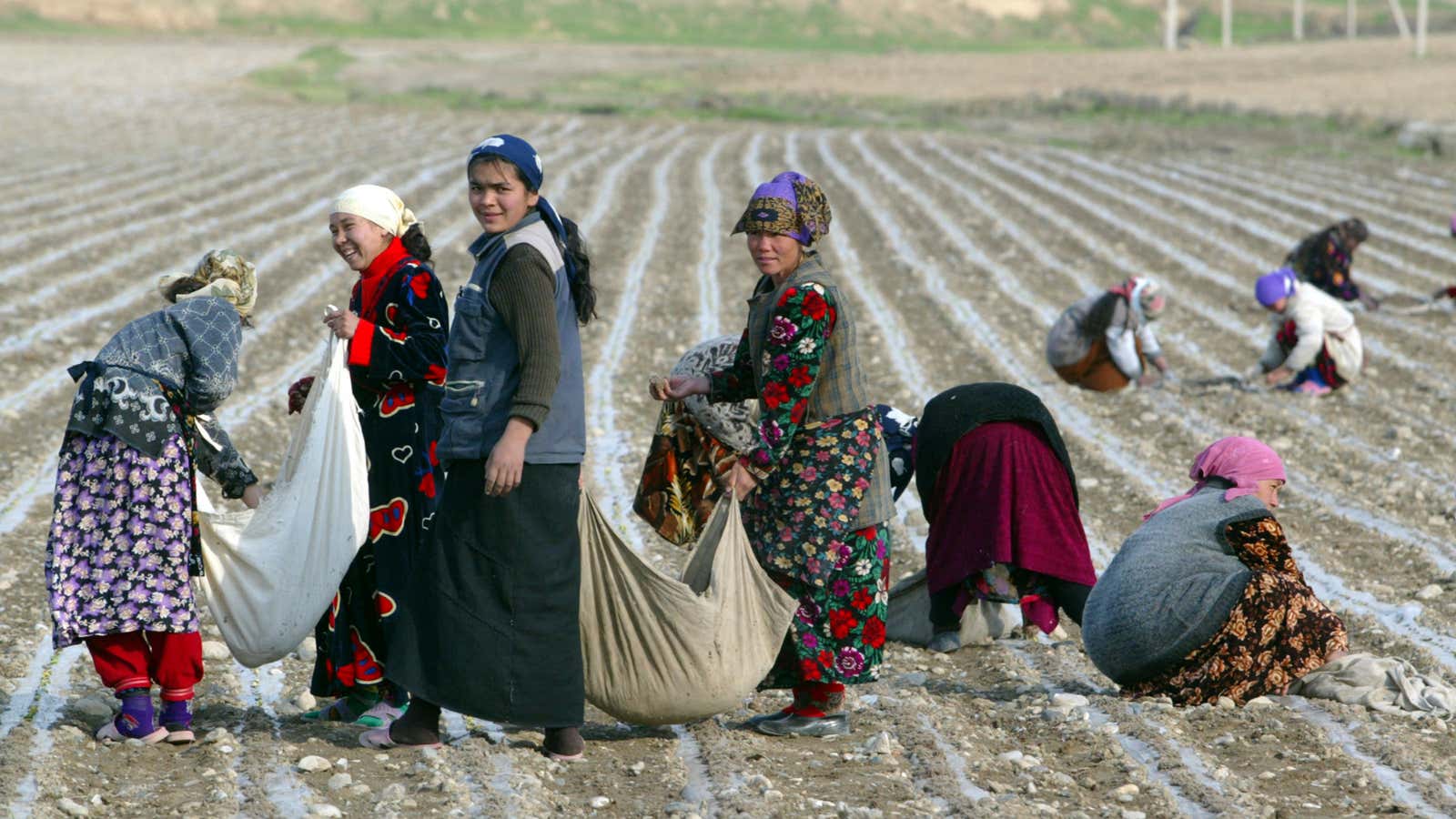Uzbekistan’s authoritarian government employs a brutally innovative system for maximizing its cotton crop profits: It forces the country’s office workers do the back-breaking work for little or no pay, and then purchases the “white gold” at below-market prices.
Every fall, many of the Central Asian nation’s public sector employees and small business workers, ranging from doctors and teachers to engineers and bureaucrats, must take to the fields to gather some 120 pounds of the raw substance every day, the New York Times reports. Those who don’t comply face arrests and fines—what’s more, adeptness at picking cotton is part of their yearly employment reviews.
President Islam Karimov‘s government, which has been in power for 24 years, claims the work is done on a voluntary basis. The practice apparently stretches back to Soviet times, when citizens were often made to toil on the land. But workers’ rights groups and the US government dismiss those claims. “The Government of Uzbekistan remains one of only a handful of governments around the world that subjects its citizens to forced labour through implementation of state policy,” the US State Department says (PDF).
Ironically, the adult workers are suffering now because of activists’ success in targeting the past use of child workers, some of whom were as young as seven. Thanks to the efforts of groups like Responsible Sourcing Network and Cotton Campaign, Western manufacturers boycotted Uzbek cotton, forcing the country to use fewer under-age laborers—but as a consequence, grown-ups are being forced to fill the gap.
“‘What have you accomplished?’” one activist said he’s been asked, according to the Times. “‘You wanted to eliminate child labor, so now we have to do it.’”
